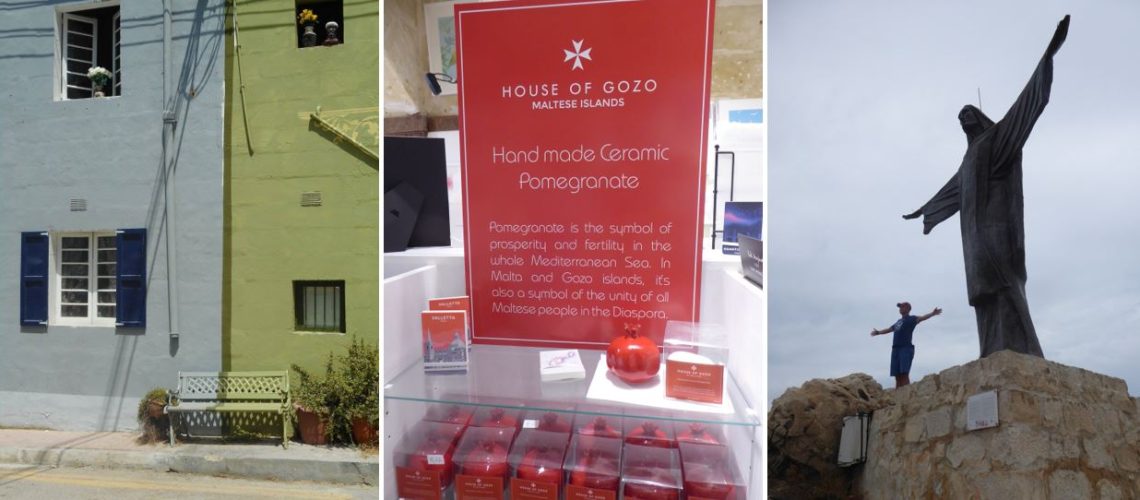On a cloudy day the other week, The Significant Other and I climbed Tal Merzuq Hill on the top of which stands a giant statue of Tas Salvatur (Christ the Redeemer; as replicated by The Significant Other in the picture above) with his arms out-stretched. He is the third such statue at this site replacing a 1960s figure whose pedestal collapsed in a thunderstorm and a previous weather-worn statue from 1904.
Folklore tells of a time that black smoke was seen coming from the top of the hill and the conical peak was thought to be a volcano. A second story suggests that God once punished the people of Gozo with three days of continual darkness after which a single ray of light from the top of the hill reached up to illuminate the sky. Scientifically both are unlikely scenarios but when has the truth got in the way of a good myth or legend?
We parked in Marsalforn, by the quirky bench of two seasons*, and strolled inland along the tree-lined stream that trickles down Wied ta Grezzju to the sea. The combination of inland waterway and trees overhead endows the valley with a flavour of the exotic and an otherworldliness in the arid summer months.
Prickly pear cacti clustered along the path like gangs of recalcitrant teens, looming overhead and marking boundaries with attitude. At this time of year their fruit is a taunting red-purple, the delicious innards swathed inside a spiny skin that needs careful handling (a good soaking overnight tames the bristles so they can be handled. I wonder if it would work with The Teens).
The prickly pear is everywhere across the island but the pomegranate we spot far less often and so we were thrilled to see them beginning to ripen on a couple of trees in the valley. The pomegranate, according to The House of Gozo who sell a rather lovely ceramic version, is the symbol of fertility and prosperity in the whole Mediterranean, and also for the Maltese and Gozitans is a symbol of the unity of all the nation’s people around the world.
This was a surprise: the pomegranate seemed little easier to eat than the dastardly prickly pear, and the bright flying juice on white walls seemed more likely to cause discord in kitchens across the diaspora. However The Significant Other’s YouTube research has discovered that cutting open it at the top – preferably with an Gharb knife – and scoring the sides overcomes this challenge and redeems the little sucker, raising it from sin-bin to fruit-bowl salvation.
[*clearly the bench’s two seasons are a Manchester wintry grey and the green beneath closed-in English skies rather than the brilliant grass green and butter gold of Gozo’s winter and summer respectively.]




